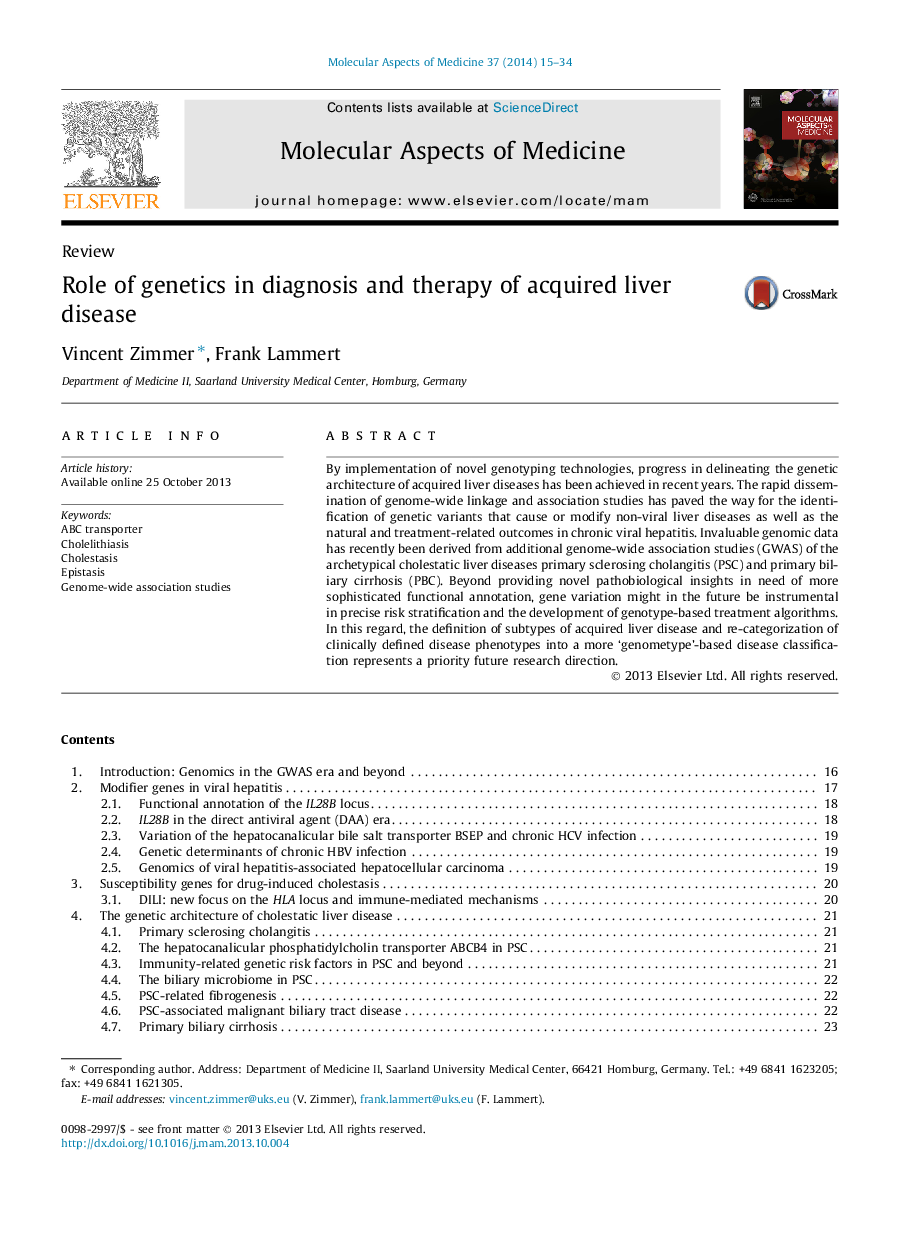| Article ID | Journal | Published Year | Pages | File Type |
|---|---|---|---|---|
| 8341471 | Molecular Aspects of Medicine | 2014 | 20 Pages |
Abstract
By implementation of novel genotyping technologies, progress in delineating the genetic architecture of acquired liver diseases has been achieved in recent years. The rapid dissemination of genome-wide linkage and association studies has paved the way for the identification of genetic variants that cause or modify non-viral liver diseases as well as the natural and treatment-related outcomes in chronic viral hepatitis. Invaluable genomic data has recently been derived from additional genome-wide association studies (GWAS) of the archetypical cholestatic liver diseases primary sclerosing cholangitis (PSC) and primary biliary cirrhosis (PBC). Beyond providing novel pathobiological insights in need of more sophisticated functional annotation, gene variation might in the future be instrumental in precise risk stratification and the development of genotype-based treatment algorithms. In this regard, the definition of subtypes of acquired liver disease and re-categorization of clinically defined disease phenotypes into a more 'genometype'-based disease classification represents a priority future research direction.
Related Topics
Life Sciences
Biochemistry, Genetics and Molecular Biology
Biochemistry
Authors
Vincent Zimmer, Frank Lammert,
